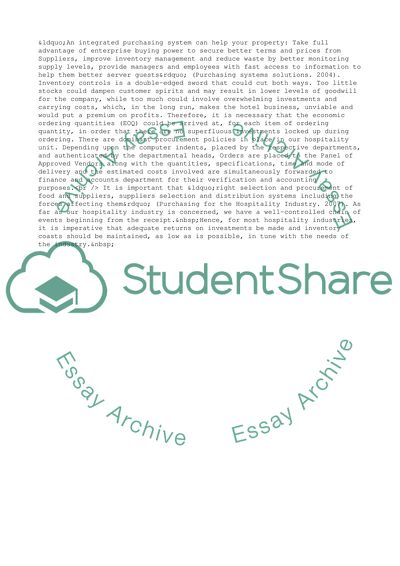Cite this document
(Purchasing in Hospitality Operations Assignment, n.d.)
Purchasing in Hospitality Operations Assignment. Retrieved from https://studentshare.org/business/1710806-purchasing-in-hospitality-operation
Purchasing in Hospitality Operations Assignment. Retrieved from https://studentshare.org/business/1710806-purchasing-in-hospitality-operation
(Purchasing in Hospitality Operations Assignment)
Purchasing in Hospitality Operations Assignment. https://studentshare.org/business/1710806-purchasing-in-hospitality-operation.
Purchasing in Hospitality Operations Assignment. https://studentshare.org/business/1710806-purchasing-in-hospitality-operation.
“Purchasing in Hospitality Operations Assignment”, n.d. https://studentshare.org/business/1710806-purchasing-in-hospitality-operation.


